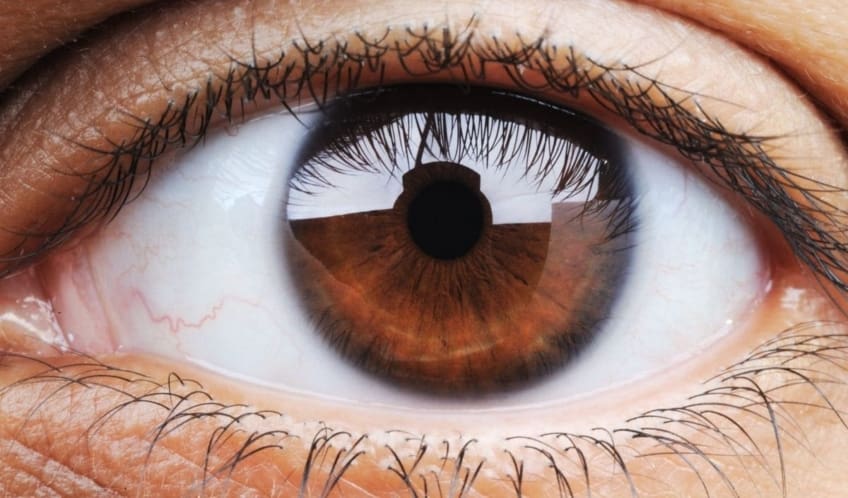
What is diabetic retinopathy?
Diabetic retinopathy is an eye condition that affects people who have diabetes. It affects your retina. The retina is the part of your eye that is sensitive to light. The retina sends messages to your brain about what you see. A healthy retina is necessary for good vision.
Diabetic retinopathy can cause blurry vision and progressive vision loss. When it’s found early, laser treatment can help keep you from losing your vision. If it’s not treated, retinopathy can cause blindness.
It is important to note that retinopathy can occur even in well-controlled diabetes. You should be evaluated for retinopathy if you have diabetes.
Symptoms
The early stages of diabetic retinopathy may present few, if any, symptoms. That’s why eye exams are important. The American Optometric Association recommends that people who have diabetes get a comprehensive dilated eye exam once a year.
The symptoms for diabetic retinopathy can be mild to severe. Call your doctor if you:
- Have blurry vision for more than 2 days
- Suddenly lose vision in 1 or both eyes
- See floaters (black or gray spots, cobwebs, or strings that move or drift when you move your eyes)
- See flashing lights that aren’t really there
- Have pain or pressure in your eye(s)
Causes
Uncontrolled or poorly controlled diabetes can damage the small blood vessels of the retina. When the blood vessels of your retina are damaged, fluid can leak from them and cause swelling. The swelling and fluid can cause blurry vision and make it hard for you to see. If retinopathy worsens, your eye may begin to form new blood vessels over the retina. These vessels are fragile and can break easily and bleed. This bleeding can cause severe vision loss and blindness.
Diagnosis
Your eye doctor may find evidence of diabetic retinopathy during a routine eye exam even if you have no symptoms. You probably won’t notice the early signs of diabetic retinopathy. These early changes in your eyes can only be seen using special equipment.
The best way for your eye doctor to check for this condition is to dilate your eyes. Dilating your eyes opens up your pupils. This makes it easier to see the insides of your eyes. They can dilate your eyes using eye drops.
While your eyes are dilated, your doctor will look for anything unusual. This includes looking for swelling, scar tissue, and abnormalities in blood vessels. They will also evaluate your optic nerve.
Prevention
The best way to prevent diabetic retinopathy is to work with your doctor to manage your diabetes. You should also have your eyes checked regularly—at least once a year. Your doctor can tell you if you should have them checked more often.
Often, especially in rural areas, your family doctor may be able to screen you for diabetic retinopathy in their office. In these instances, your doctor will take an image of your dilated retina and send it to an eye doctor for review.
Tips for preventing diabetic retinopathy:
- Control your blood sugar, blood pressure, and cholesterol.
- Get a yearly eye exam.
- Exercise regularly.
- Eat a healthy diet.
- Quit smoking.
- Avoid alcohol.
- See your family doctor regularly.
Treatment
There’s no cure for diabetic retinopathy. But there are some treatment options that can help prevent or slow down vision loss. These are more effective in the early stages of the condition.
- Laser treatment is one way to prevent vision loss. Lasers can seal leaking blood vessels within the retina. They also can blast abnormal blood vessels there.
- Anti-inflammatory medicine (steroids) also may lessen vision loss in diabetic retinopathy. This medicine works to help shrink abnormal blood vessels in the retina.
- Anti-VEGF medicine can help reduce the growth of abnormal blood vessels. It also reduces swelling of the macula.
- Your doctor may suggest a surgery called vitrectomy. This involves removing the vitreous gel from your eye. Doing this can improve vision by letting light flow through to the retina.
Living with diabetic retinopathy
Learning to live with vision loss is difficult. The best way to prevent vision loss is to manage your diabetes. Keep your blood sugar at an appropriate level with the help of your doctor. Go in for a thorough eye exam every year or as recommended by your doctor. Doing these things can prevent vision loss even if you have been diagnosed with diabetic retinopathy.
Questions to ask your doctor
- Am I at risk for diabetic retinopathy?
- What signs should I look for if I think I may have diabetic retinopathy?
- If I get diabetic retinopathy, can the vision loss be reversed?
- Will I ever see normally again?
- Are there medicines I can take for my symptoms?
- What’s the most important thing I can do to prevent diabetic retinopathy?
Resources
National Institutes of Health, National Eye Institute: Diabetic Eye Disease
![]()
Copyright © American Academy of Family Physicians
This information provides a general overview and may not apply to everyone. Talk to your family doctor to find out if this information applies to you and to get more information on this subject.






